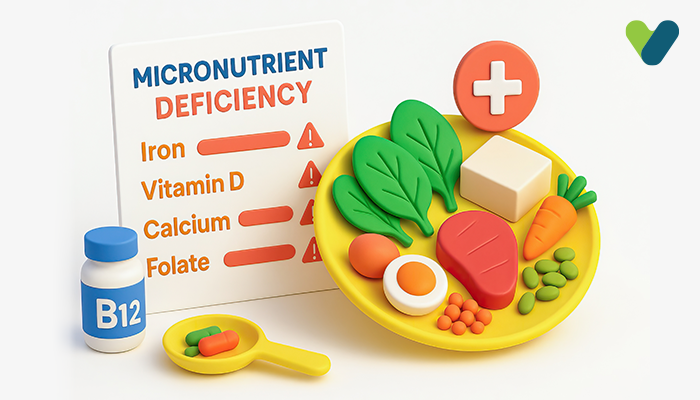Shailesh is a 27-year-old unmarried man, who is eager to get married this year. But, whenever he goes for a marital alliance, he gets rejected due to a tired-looking appearance and swollen legs. Shailesh consulted a doctor and got a full body check and some tests are done to find out what is wrong with his physique and why is he feeling lethargic all day long? The doctor finally revealed after a thorough examination that was suffering from protein deficiency symptoms. He then advised him to get a diet rich in protein food and also advised him to take some protein supplements and shakes for a few weeks.
Protein is indeed one very vital nutrient required by our body for proper functioning and growth. It plays a great role in building, repairing, as well as oxygenating the body by producing enzymes required to digest the food we eat. This is not all, protein has a major role in regulating the hormonal levels in our body too.
Let us help you understand how to identify the symptoms of low protein. But, before we do that, let us first understand the importance of protein in our body.
Why Does Our Body Need Protein?
Ever wondered, why do body-builders rely on protein shakes? It is because protein is a body-building nutrient. Protein is an essential nutrient required by our body to build and repair cells and tissues. This nutrient is a super-nutrient, as it contains 20 amino acids, which includes 9 essential amino acids. Therefore, proteins together with the amino acids in them all work together to make our body, muscles, and immune system complete.Signs of Protein Deficiency
1. Sugar Cravings
The easiest protein deficiency symptoms to watch out for is when you have sudden sugar cravings. It happens because, experts believe that when there is not enough protein in the body, the blood sugar levels fluctuate and one craves sugar-loaded foods and beverages.2. Edema
The second symptom of protein deficiency is edema or swelling. Your skin may puff up due to a reduction in the human serum albumin levels, which is a kind of protein present in the blood plasma. Edema can be seen in your legs, abdomen, feet, and any part of your body due to a lack of protein.3. Fatty Liver
Third common sign of protein deficiency is fatty liver or Kwashiorkor. This is a common protein deficiency disease where the fat gets accumulated in the liver cells, which ultimately leads to inflammation in the liver.4. Improper Growth in Children
Children who are not eating enough protein in their meals suffer from improper growth in the growing years. This happens mainly because protein is a body-building nutrient and its shortage in the body will lead to stunting the ideal growth of a child and they might stay malnutrition or short in height.5. Higher Risk of Catching Infections
Another common sign of protein deficiency is when one gets infected very easily. Lack of protein impairs one’s immune system and as a result, there is a higher risk of catching infections like influenza, the common cold, and flu.6. Higher Risk of Bone Fractures
Up next, don’t forget that protein deficiency may put you at a higher risk of bone fractures. Not taking an adequate amount of protein in the diet may make your bones weak and as a result, there are higher chances of suffering from bone fractures.7. Loss of Muscle Mass
Likewise, those who have low protein levels in the body often tend to lose their muscle mass. It is because protein is a body-building nutrient and its deficiency leads to loss of muscle mass, and the tissues and muscles are not able to grow and repair on their own.8. Increase in Appetite
When talking about the common protein deficiency symptoms, one can easily identify that the body needs more protein when you feel there is a sudden increase in your appetite. You will be hungry all the time even after having a wholesome meal.9. Hair, Nail, and Skin Problems
Talking about some other lack of protein symptoms, watch out for your hair, nails, and skin carefully. These parts of your body will show you the sign of protein deficiency very clearly. Your skin and nails will either show some redness, flakiness, or patches. Whereas, your hair will become thin and you might even suffer from hair loss due to protein deficiency.10.Weaker Immune System and Healing Power
Another sign of low protein levels in your body is when your body takes more time to heal after injuries. You may not know but protein plays a vital role in strengthening our immune system, so when there is protein deficiency in your body, your body will slow down the repairing process.Foods Rich in Protein
Here is a list of foods rich in protein to encounter lack of protein symptoms:- Eggs
- Dairy Products
- Lean Meat
- Fish and Seafood
- Almonds
- Peanuts
- Greek Yogurt
- Quinoa
- Oatmeal
- Pumpkin Seeds
- Lentils and Legumes
Read More: High Protein Low Carb Foods You Should Consider In Your Daily Life


